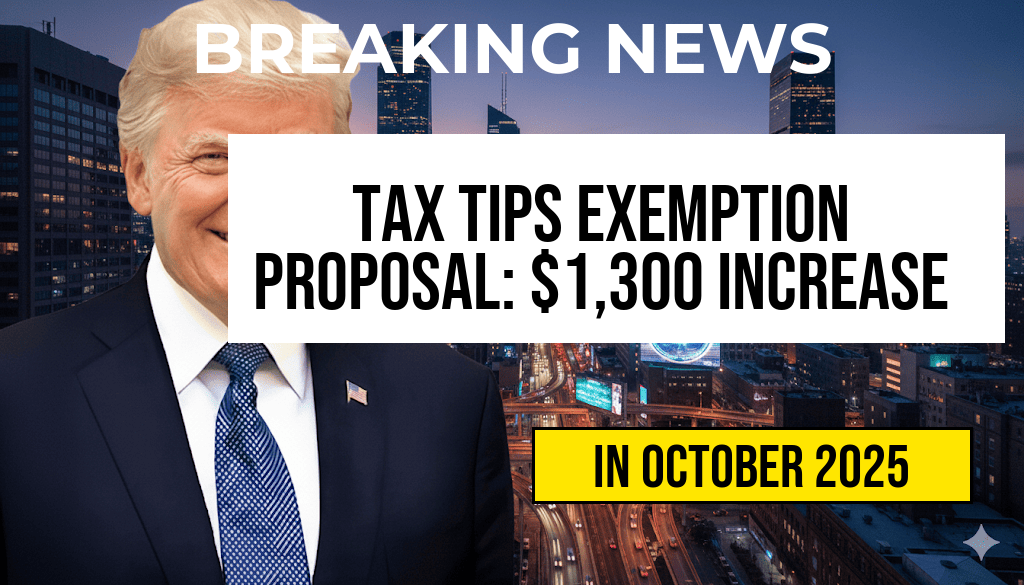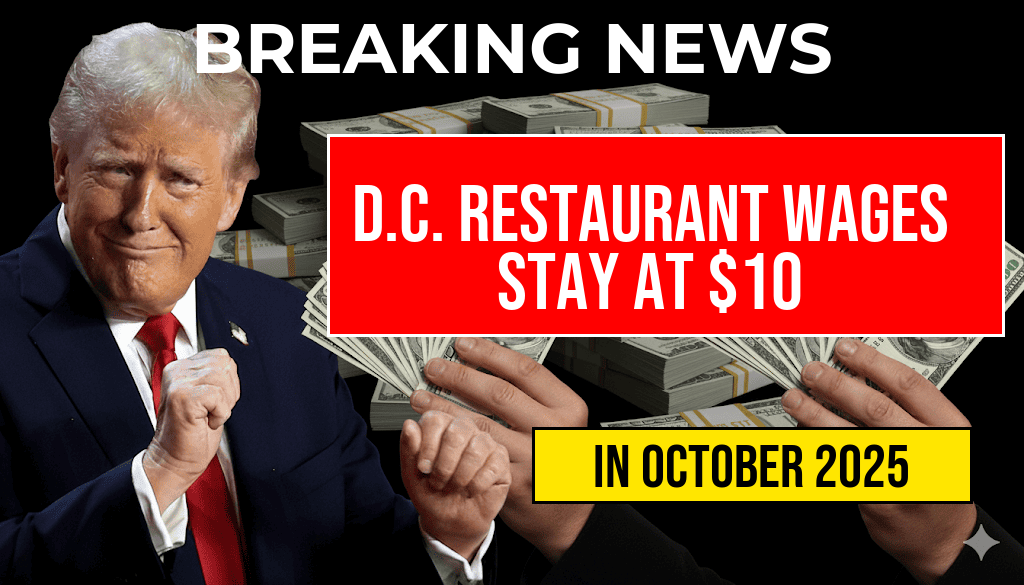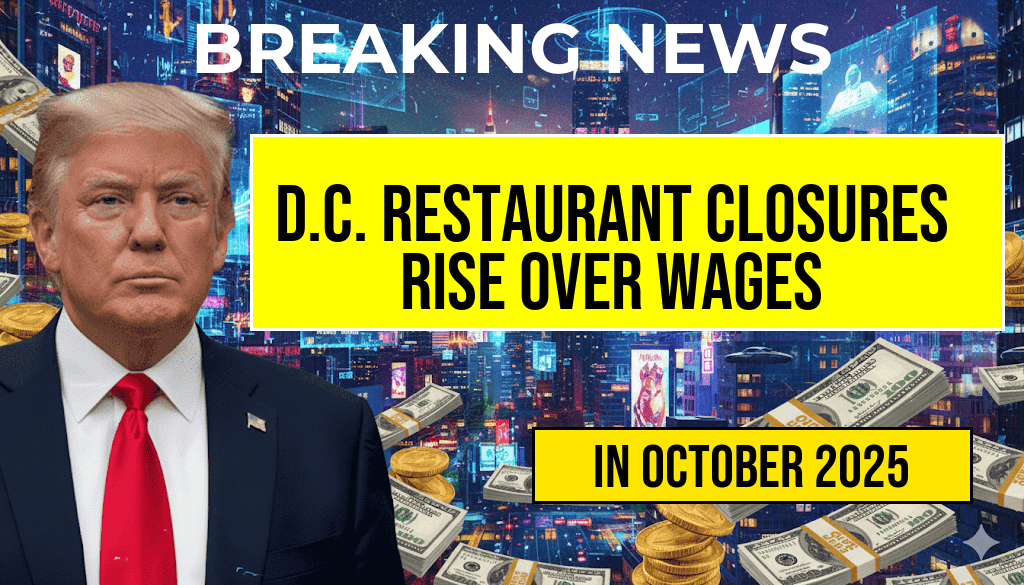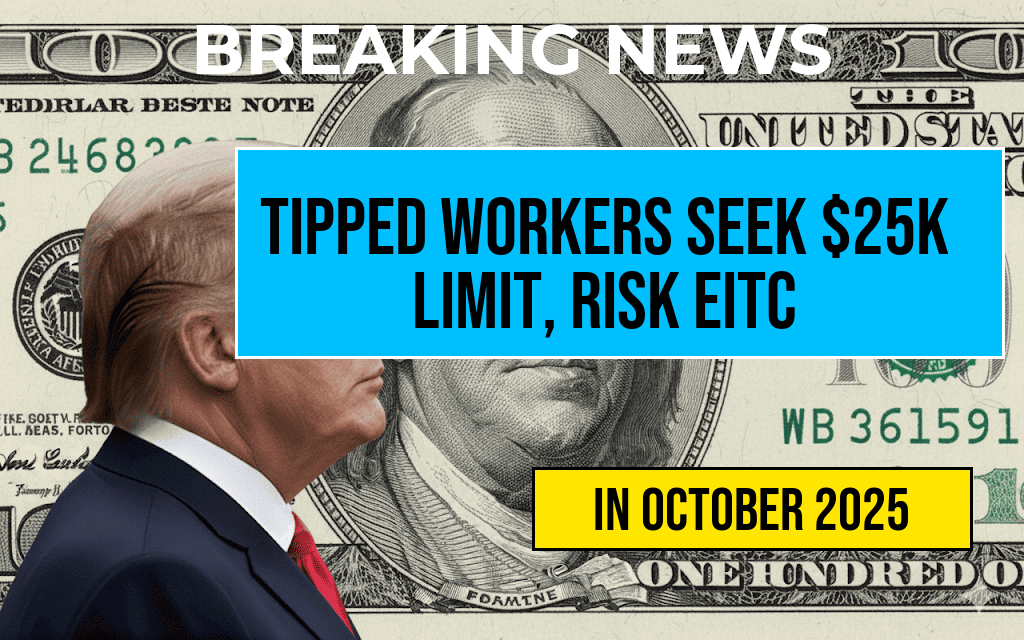Restaurant Wage Update: D.C. Maintains $10 Base Salary Amidst $4,160 Shortfall Compared to $12 Hourly Rate
District of Columbia restaurant workers received a notable update on their minimum wages this month, with authorities confirming that the city will uphold a $10 per hour base salary for tipped employees. However, this decision leaves a significant gap when compared to the standard $12 hourly rate that many industry advocates argue is necessary to support a living wage. The discrepancy amounts to approximately $4,160 annually for full-time staff earning 40 hours weekly, highlighting ongoing debates about fair compensation amid rising living costs. While the city’s wage policies reflect a cautious approach to balancing economic recovery post-pandemic with worker protections, critics emphasize that the current framework falls short of ensuring sustainable livelihoods for frontline restaurant employees. This update arrives amidst broader discussions at the national level about elevating minimum wages for tipped workers, which remain a contentious issue across many jurisdictions.
Background: Wage Standards and Local Legislation
In D.C., minimum wage laws are periodically revised to reflect economic conditions and advocacy pressures. The District’s minimum wage for non-tipped employees currently stands at $16.10 per hour as of 2023, but for tipped workers, the base rate remains lower—set at $10 per hour, with tips expected to bridge the gap to meet or exceed the full minimum wage. The city’s wage policies align with federal standards, which allow employers to pay a tipped minimum of $2.13 per hour under the Fair Labor Standards Act (FLSA), provided tips bring the total earnings up to at least the federal minimum of $7.25.
However, critics argue that these thresholds are outdated and insufficient, especially considering the rising costs of living in D.C., often ranked among the most expensive U.S. cities for housing, transportation, and essentials. Advocates for restaurant workers have long called for a uniform minimum wage that does not rely heavily on tips, citing that tip-based earnings can be unpredictable and insufficient to guarantee a living wage.
Financial Gap: Quantifying the Shortfall
| Wage Rate | Annual Earnings (40 hrs/week) | Difference from $12/hr |
|---|---|---|
| $10/hr | $20,800 | $4,160 |
| $12/hr | $24,960 | N/A |
The $2 per hour difference translates into an annual shortfall of $4,160, which many industry workers and advocates argue diminishes their ability to meet basic needs such as housing, healthcare, and transportation. This gap underscores persistent disparities in wage policies that favor tipping flexibility over guaranteed income levels.
Industry and Policy Reactions
Supporters of the Current Rate
Some restaurant owners and industry representatives contend that maintaining a $10 base wage allows for flexibility during economic recovery phases and encourages employment growth. They cite the potential for tips to supplement income, especially in high-volume establishments, as a rationale for keeping wages below the proposed $12 benchmark. According to the Washington Restaurant Association, this structure helps small businesses remain competitive while providing employment opportunities in a recovering economy (source).
Advocates for Higher Wages
Labor unions and worker rights organizations emphasize that the current wage structure perpetuates income insecurity. “A $10 base wage with reliance on tips creates unpredictable earnings, and many employees struggle to make ends meet,” said Maria Lopez, a spokesperson for the D.C. Hospitality Workers Alliance. They urge policymakers to consider legislation that would set a higher, non-tipped minimum wage, aligning more closely with the cost of living increases and economic fairness (source).
Broader Implications and Future Outlook
The wage update in D.C. comes at a time when many cities and states are debating or implementing legislation aimed at raising tipped wages. Several jurisdictions, including California and Maine, have moved toward eliminating the tipped minimum wage altogether, advocating for a single, fair minimum that applies regardless of tips. Nationally, discussions continue about whether federal policies should be adjusted to reflect current economic realities, with some lawmakers proposing to increase the federal tipped minimum wage from $2.13 to at least $7.25 per hour, or abolish the tipped minimum entirely.
While D.C. maintains its current $10 minimum for tipped employees, the ongoing dialogue signals a broader shift in how worker compensation is conceptualized within the service industry. As the city navigates its economic recovery, balancing business interests with worker protections remains a challenge, especially amid rising inflation and housing costs that strain many restaurant employees.
For more details on wage policies and legislative updates, visit the official District of Columbia government website and industry-specific advocacy groups.
Frequently Asked Questions
What is the current minimum wage for restaurant workers in Washington D.C.?
The current minimum wage for restaurant workers in Washington D.C. remains at $10 per hour.
How does the wage shortfall compare to the recommended hourly rate?
There is a shortfall of $4,160 when comparing the current $10 base salary to the recommended $12 per hour rate.
Why has D.C. maintained the $10 hourly wage despite the shortfall?
The decision to maintain the $10 base salary is influenced by policy considerations and efforts to balance economic factors and industry impacts.
What are the potential implications of the wage gap for restaurant workers?
The wage gap may affect worker earnings, cost of living, and overall industry competitiveness in Washington D.C..
Are there any upcoming changes expected for the restaurant wage policies in D.C.?
As of now, there are no announced future adjustments to the restaurant wage policies, but ongoing policy reviews may influence future updates.










